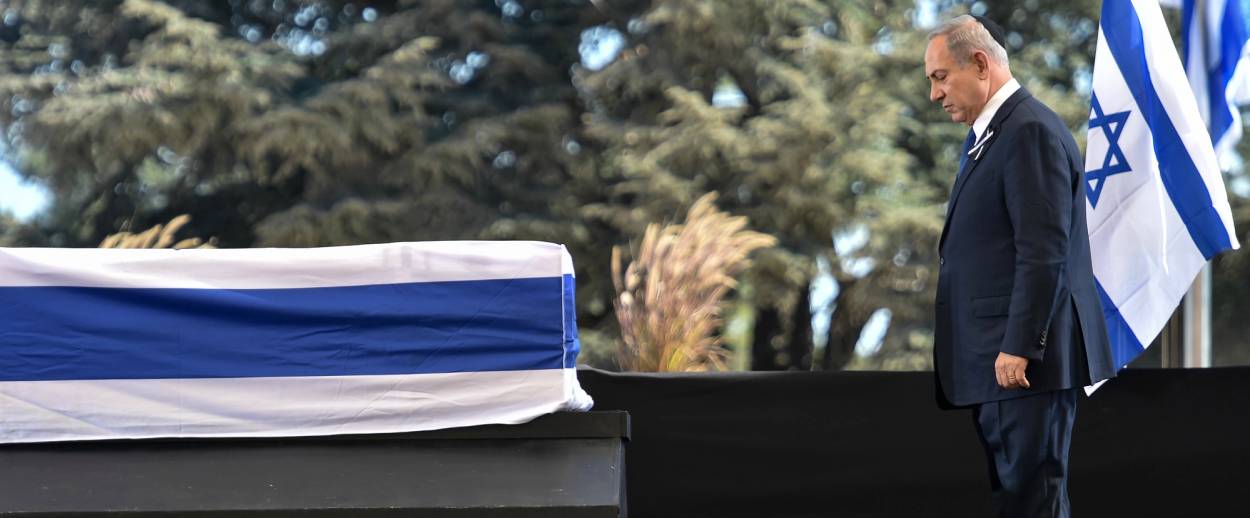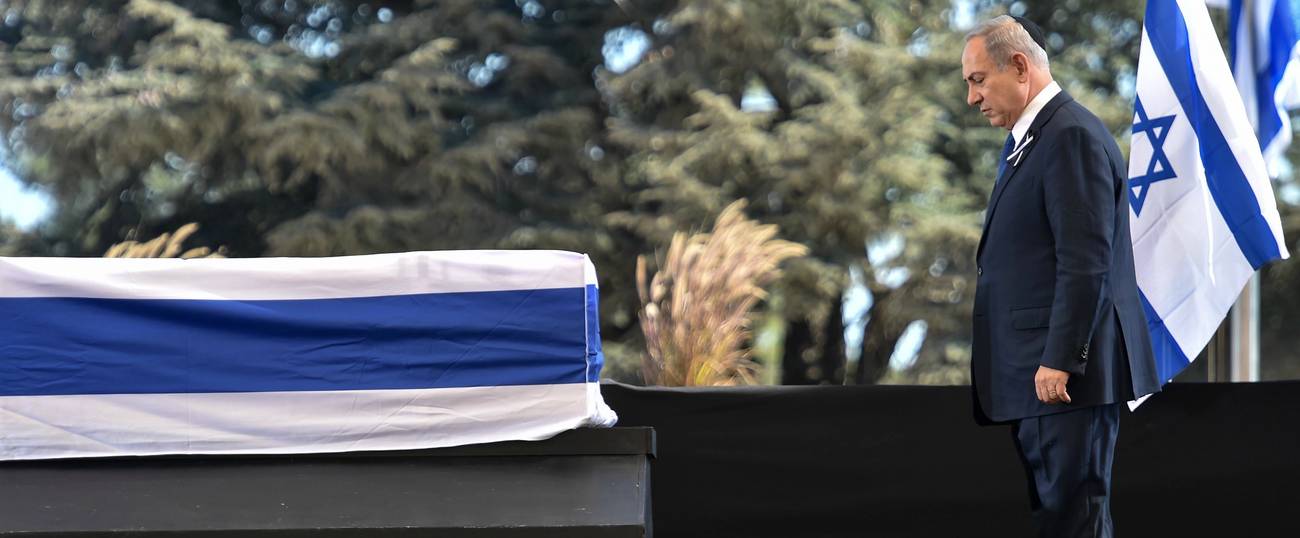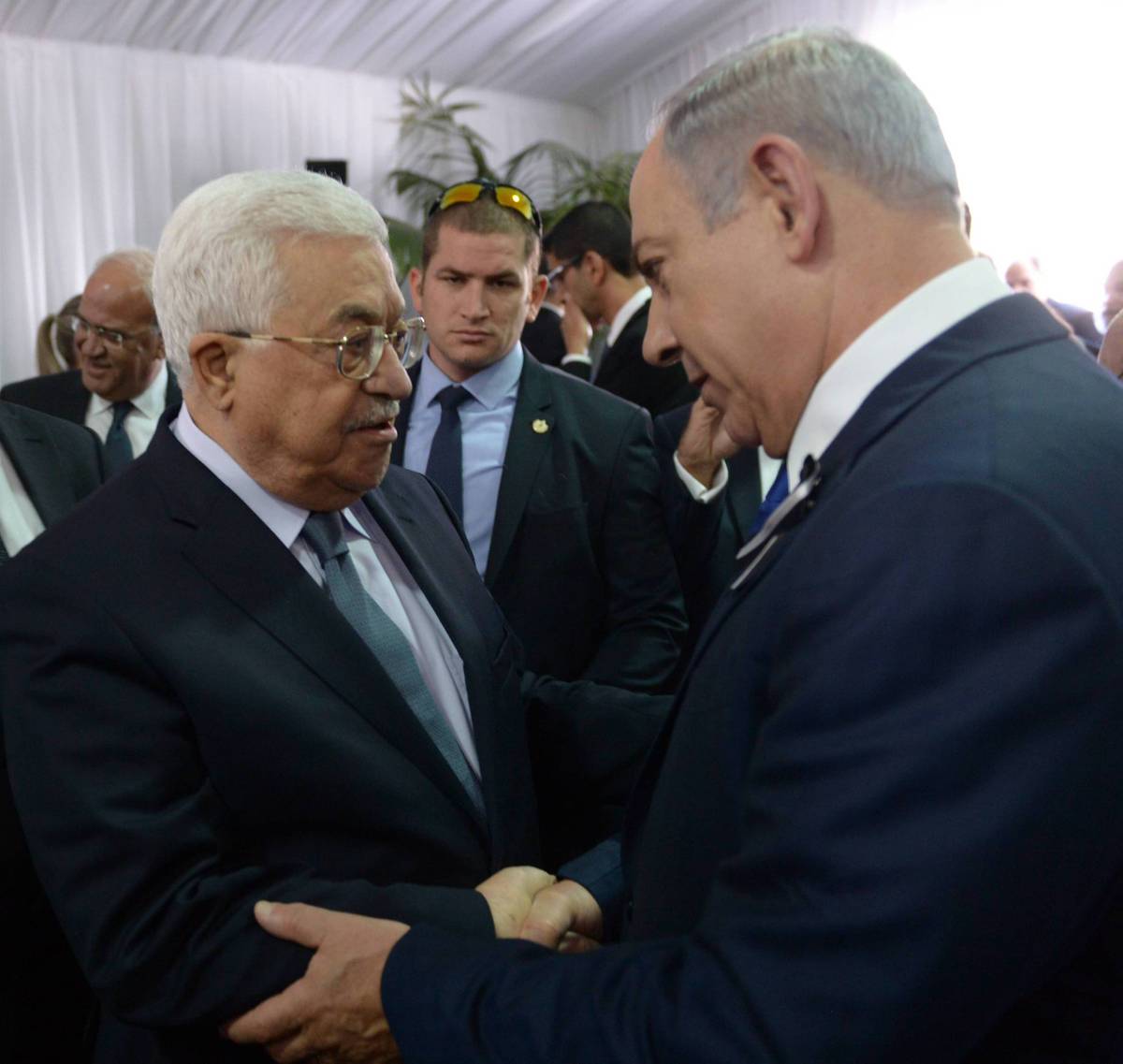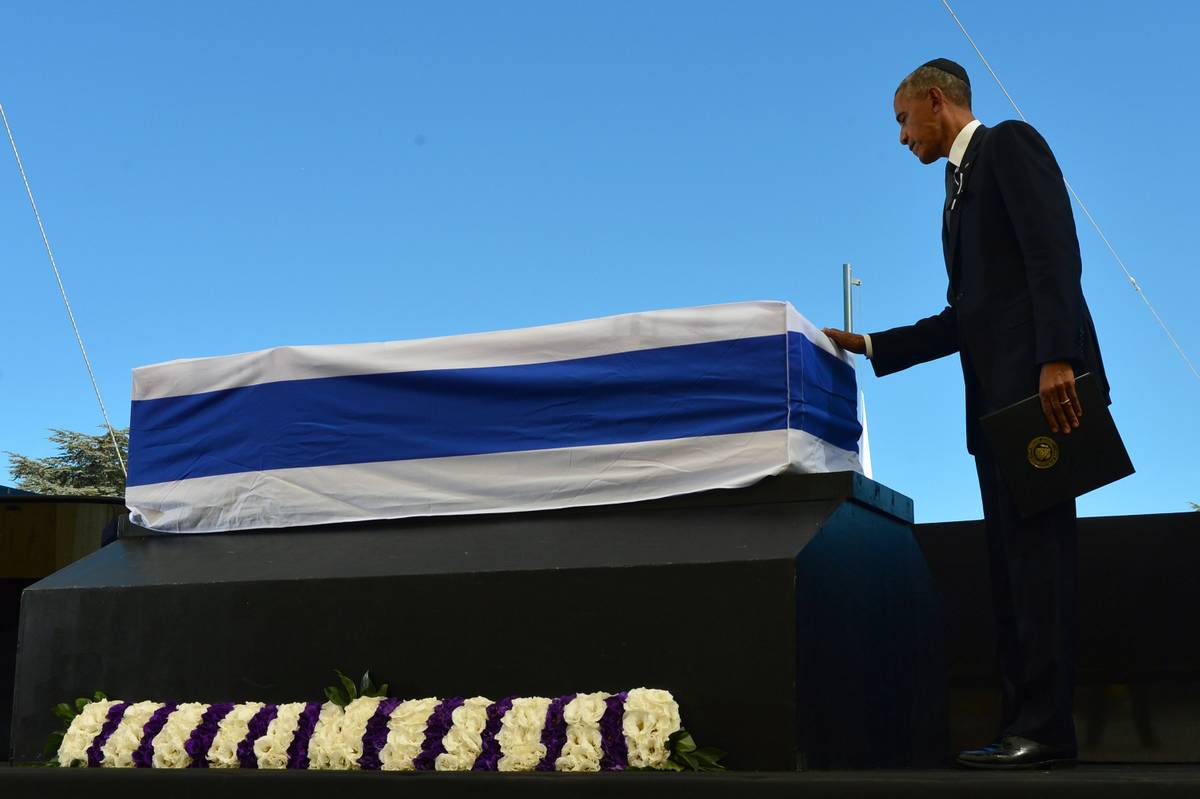Shimon Peres Laid to Rest in Jerusalem
Foreign leaders—and the entire state of Israel—mourned the loss of one of the great leaders of the 20th century




Shimon Peres, who was buried this morning on Mt. Herzl in Jerusalem at a funeral ceremony attended by leaders from over 100 countries, including President Barack Obama and former President Bill Clinton, spent much of his life being eulogized. He certainly had the opportunity of reading his own political eulogy countless times. The man who was prime minister and president of the State of Israel, who held almost every significant ministerial position, who had won the Nobel Prize, was perennially the man who had never quite fulfilled his political potential. Or at least it seemed that way until it slowly dawned on us Israelis that we had our own homegrown, world-class elder statesman. And so Shimon Peres also had the opportunity of having his life celebrated, first at his 80th birthday celebration in 2003 and on countless festive occasions since. Two weeks ago, when Peres suffered a stroke, the newspapers here were quick to trot out their pre-written obituaries. When Peres’ death at 93 was announced early on Wednesday, the tone of the media coverage shifted quickly from shock to sobriety. This time, he was really gone.
Funerals of leaders occupy a strange ex-territorial space on the world stage. Official protocol is eschewed, and the pilgrimages made by foreign delegations don’t count as formal state visits. Similar to the funeral of Yitzhak Rabin in 1995, this morning’s ceremony was able to accommodate Prince Charles, despite the British royal family’s unofficial policy of not visiting the land of their former mandate. Such technicalities did not help Palestinian leader Mahmoud Abbas, whose decision to visit the pantheon named for the founder of Zionism—also the site of Israel’s national military cemetery—was roundly criticized by his political rivals (Egypt and Jordan sent only mid-level delegations).

Rabin’s assassination in 1995 marked my generation’s rude awakening to politics. Peres was foreign minister at the time, and quickly assumed the premiership. And so even Israelis like myself, who were born fairly late in Peres’s seven decade-long career, are old enough to remember the deeply unpopular, belittled Peres. All the more impressive, then, was his remarkable transformation, accomplished largely since he ascended to the presidency in 2007 (he had begun to spout his trademark aphorisms some years earlier). Peres rebranded himself as founding father and cosmopolitan elder statesman, eternal optimist, and dreamer, transcending politics while remaining all the while political to the core.
Reflecting the political reality, today’s official Israeli speakers were all former rivals of Peres from the right-wing Likud party. The first to speak was President Reuben Rivlin, who asked for Peres’s forgiveness. “It was alright to disagree with you,” he said. “It was your opponents’ duty to express their opinion. But there were years where the lines were crossed, between ideological disputes and words and deeds which had no place.”
Prime Minister Benjamin Netanyahu’s narrow defeat of Peres in 1996 was surely the latter’s most painful political blow. “It’s no secret that Shimon and I were political rivals, but over the years we became friends, even close friends,” he said. Netanyahu recalled a long night he spent debating President Peres over what should take primacy in Israel policy: security or peace. “There can be no peace without security first,” Netanyahu argued, to which Peres replied that if there is peace, there will be security. “And do you know what I realize now?” Netanyahu asked. “That we were both right”. (This self-characterization of Bibi and Shimon as good-natured debaters is somewhat pat; Peres was surely heartbroken by the obstinacy of Netanyahu and Abbas in recent years, which continued this morning as the Israeli Prime Minister opted to not publicly acknowledge the rare presence of his Palestinian counterpart, much less take advantage of the unprecedented convergence of world leaders for an impromptu peace summit).

It was left to the Israeli author Amos Oz and the American presidents Obama and Clinton to represent Peres’s politics. Clinton, partner to Rabin and Peres in the peace talks with the Palestinians and Jordanians in the 1990s, called Peres “a wise champion of our common humanity” and said that he was always in awe of his “endless capacity to move beyond even the most crushing setbacks in order to seize the possibilities of each new day.”
President Obama riffed on the similarities and differences between himself and his friend. “As an American, as a Christian, a person partly of African descent, born in Hawaii—a place that could not be further than where Shimon spent his youth—I took great pleasure in my friendship with this older, wiser man,” he said. “We shared a love of words and books and history. And perhaps, like most politicians, we shared too great a joy in hearing ourselves talk.” He spoke of Peres’s life, of the two-state solution being imperative for Zionism. Finally, echoing Clinton’s own legendary eulogy for Rabin, which ended with “shalom chaver,” or “goodbye friend,” he said “todah raba chaver yakar.” Thank you, dear friend.
Amos Oz, a close friend of Peres for over forty years, reiterated the simple truths: “We have nowhere else to go, and neither do the Palestinians,” he said. “We have no choice but to divide this house into two apartments. Deep in their hearts, almost everyone on both sides know this to be true. But where are the brave leaders who will stand up and make this a reality?”
Every Friday afternoon Peres and Oz would hold a long phone call. And even though Peres was gone now, Oz said he had no intention of putting an end to their tradition. “As long as I live, the conversation between Shimon Peres and myself will continue,” he said. “As long as the State of Israel exists, the conversation will continue.”
Related: One Last Interview
Tal Kra-Oz is a writer based in Tel Aviv.